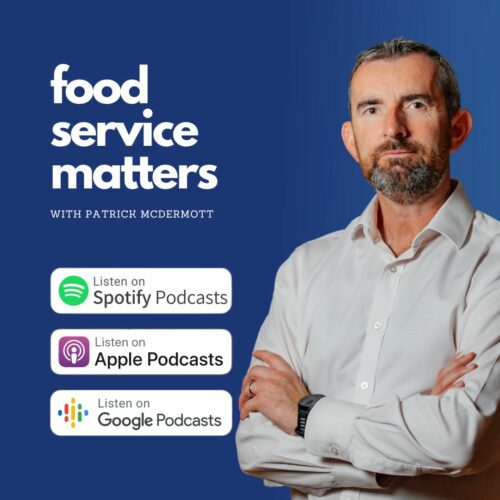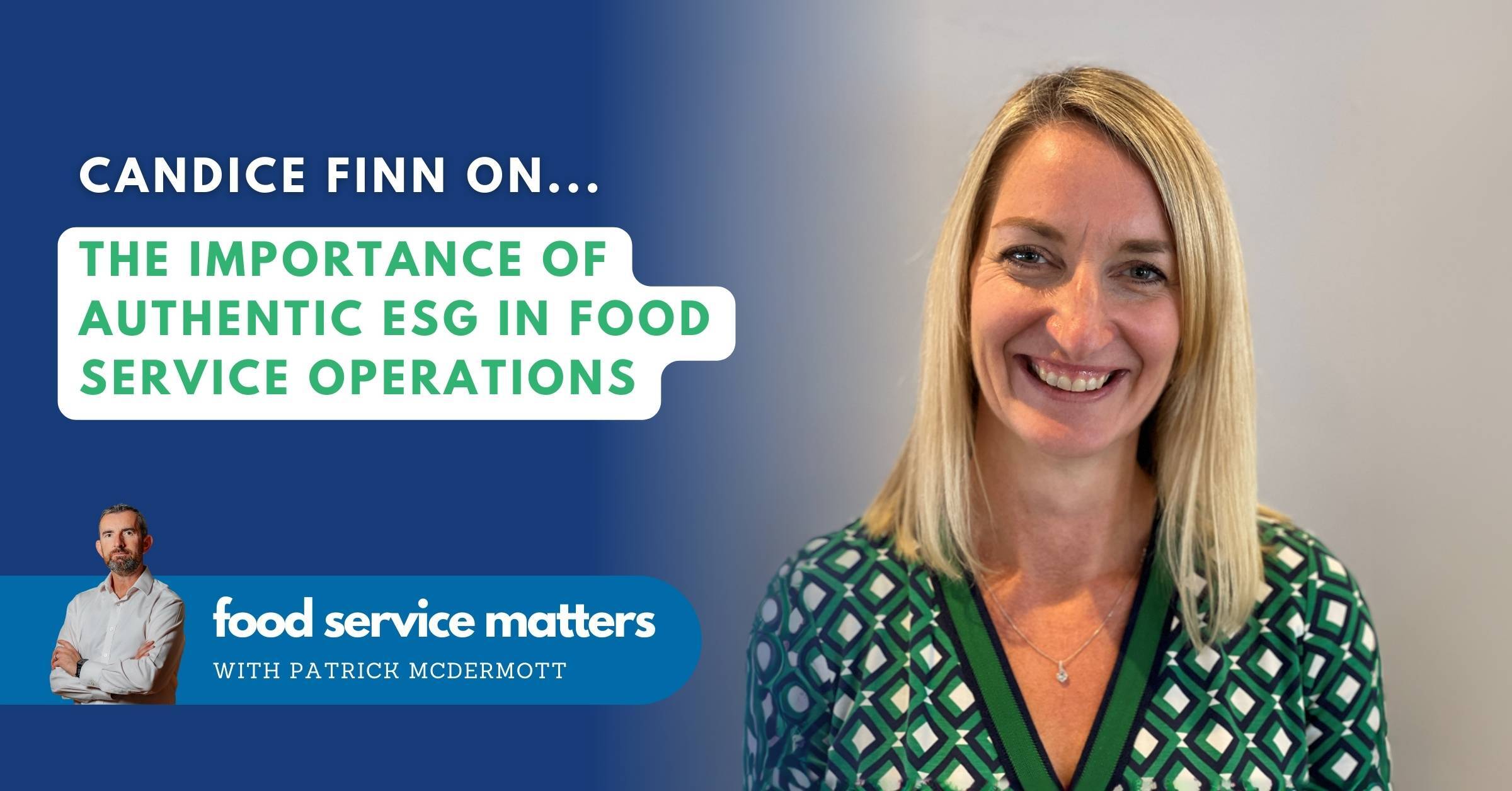As the world becomes increasingly conscious of ecological and social issues, implementing strong environmental, social and governance (ESG) principles is no longer an optional formality for food service companies. Consumers now expect the businesses they interact with to have authentic, measurable ESG commitments embedded into their core operations. Failing to do so can significantly impact reputation, customer loyalty and long-term business prospects.
In Season Two, Episode Four of the Food Service Matters podcast, host Patrick McDermott talks to Candice Finn, Commercial Development Director for Litmus, a specialist consultancy working with organisations in the food service and facilities management sectors.
In this article, we share Candice’s thoughts on how this shift towards authentic ESG has raised the bar for food service providers. We also discuss the true meaning of accreditations like B Corp and the importance of transparency and accountability.
Why is ESG critical for food service companies?
ESG is no longer just a niche consideration; it’s a key requirement that food service businesses must take seriously. Not only are today’s consumers more environmentally and socially conscious, but regulations around environmental protection, workplace standards and other ESG areas are also continuously evolving.
As Candice highlights, “Whereas before, ESG felt more like a box-ticking exercise, this has very much changed now. It’s at the top of the agenda across multiple sectors, whether public or private, and there’s a real need for it to be treated as a priority.”
Moreover, vigorous ESG integration provides strategic business benefits. Many sustainability initiatives can increase cost savings and boost profitability, especially as investors are increasingly tying capital allocation to ESG performance. This means that failing to integrate measurable ESG practices can significantly impact a food service provider’s reputation and business prospects, as this issue becomes further embedded into corporate decision-making.
It also plays a huge part in staff recruitment, as younger talent overwhelmingly prefers employers who demonstrate authentic ESG in their operations.
Demonstrate commitment through food service accreditations
For food service companies looking to validate their ESG credentials, respected accreditations like B Corp certification can provide a powerful signal to stakeholders.
However, as Candice emphasises, the real value comes from the rigour and commitment required to achieve and maintain such accreditations. “It’s more than just the accreditation badge,” she stresses. “What you’ve got to do to achieve and then maintain that accreditation demonstrates your capabilities within that area.”
The certification journey involves thorough self-examination across areas like environmental impact, community engagement, transparency and accountability. Giving the example of Litmus itself, Candice shares how the company has gone through the process of pursuing B Corp status. She reflects that it has enabled the company to “drill down on what we’re already doing well, where we need to improve and what we need to start thinking about in the future.”
Ensure transparency and accountability
In Candice’s view, food service companies must move beyond just making broad ESG statements to being fully transparent about their authentic commitments and measurable progress. “I think making robust statements as to what you’re going to achieve and how is really key,” she adds.
This transparency, paired with rigorous external auditing and public reporting, is vital for holding the food service industry accountable for its ESG obligations to customers, communities and the environment. As Candice summarises, “It’s about continuing to hold yourself to account. But it’s a long process… it’s really making sure that everybody from the top down in the organisation is on board with it.”
It’s clear that for the food service industry to keep up with rapidly evolving consumer and corporate expectations around sustainability, ESG can no longer be an afterthought. It must become part of business-as-usual operations.
Are you looking for tangible ways to drive ESG and sustainability goals for your business? Contact DigiTally today to learn how our innovative food service software can help you take a huge step towards reducing your environmental impact.
To listen to Patrick’s full interview with Candice Finn, check out the Food Service Matters podcast on Spotify, Apple Podcasts or Google Podcasts.
Patrick is CEO of DigiTally, which is playing an increasingly important role as an intuitive and interconnected simple food service software that helps save time, increase margins and combat food waste. Keen to learn more? Let’s talk! Book a 30-minute call with Patrick and get your demo set up today.




